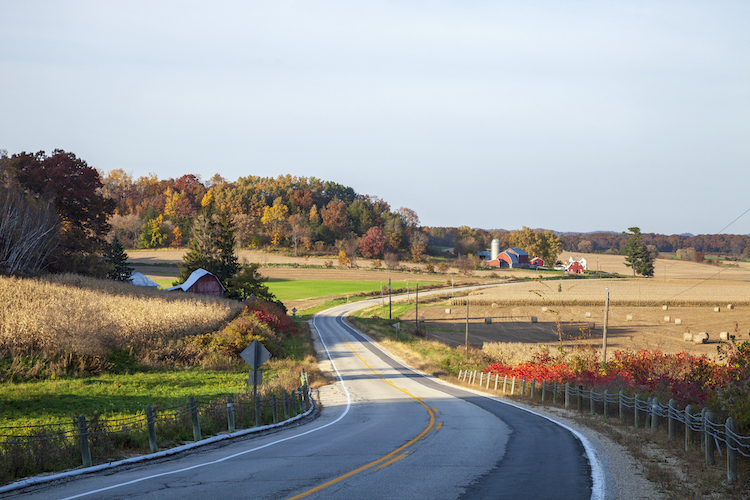
Editor’s Note: The following is an Editorial Comment from the editors of Hoard’s Dairyman.
All bills eventually come due. In the case of Wisconsin and its rural roads, which are the bedrock for the state’s prized agricultural economic engine proclaimed as America’s Dairyland on state-issued license plates, the payment bill is stamped in red ink, “Overdue!” That begs the question: Will Wisconsin’s elected officials in Madison finally address this issue or will they continue to expect cash-strapped township and county leaders to play the unrelenting game of “Patch the Crumbling Roads”?
The seeds for the current state of affairs were sown a few decades ago when the Wisconsin legislature and its governor passed legislation that capped tax rate hikes at the local level. While applause rang out from property taxpayers, it came at the expense of town and county roads. The roads in less densely populated rural Wisconsin generally have suffered the most.
With limited road budgets, the “big crumble” began, and the situation became so pronounced that Governor Tony Evers even embarked upon a Pothole Patrol Tour across the state during the height of last year’s election season.
Prior to last year’s political gamesmanship, there has been some effort from Madison to address the roadway funding shortfall. As is the case with politics, the squeakiest wheels get the most oil. Hence, major interchanges in the densely populated Milwaukee, Madison, and Fox River Valley regions received billions of dollars in shared revenue funds to update roadways. For good measure, roadways in tourist corridors also got a healthy splash of grease, or shall we say funding, too.
Meanwhile, a game of “Pin the Tail on the Donkey” has unfolded in rural Wisconsin. The biggest economic donkey is dairy. Last year, Price County looked to heavily restrict milk truck weights during the spring thaw. The proposed rules were so draconian that milk haulers and cheese plants essentially said that they would no longer pick up milk in that county given the proposal. Thankfully for Price County dairy producers, cooler heads prevailed last spring and the milk trucks continued to roll.
This year, a somewhat similar narrative took place in Chippewa County, as its officials embarked upon a plan requiring milk haulers to obtain a permit and pay a fee to traverse its county roads during the spring thaw. Dairy constituents stood up and voiced their frustration.
Though the permit fees were dropped, Chippewa County will require truckers to obtain a no-cost permit and discuss roadway routes with its highway commissioner. This is taking place even though not one county official can point to a credible report indicating milk trucks have caused any damage. Dairy farmers outside of these two counties are also in the economic crosshairs, pondering if their milk will be picked up or if their county will be the next to invoke new hauling rules. It’s feared these extra regulations and requirements may induce some truckers to leave the milk transportation profession altogether in favor of an easier haul.
At the March 2023 Chippewa County board meeting, a young, articulate dairy farmer said a mouthful during the public comment session. “The solution isn’t putting more and more restrictions on roads. The fact is our roads are not heavy enough for the loads. It’s not the other way around,” said Matthew Holub, with the “roads not being heavy enough” referring to the lack of investment in rural road infrastructure.
“These roads were built when we were hauling single-axle and tandem-axle trucks. That’s not the case anymore. The loads are not getting any smaller — they are going to get bigger,” Holub continued. “Honestly, it’s a bigger issue than just this county.”
He’s absolutely right.
What’s the solution?
To build better rural roads, Madison leaders either need to send more money to township and county officials. At the same time, if money actually flows from the state capital to fund local roads, that also should come with permanent weight exemptions for the rebuilt roads.
While debating and delivering a solution, we would also suggest additional action on state statutes — milk trucks should be added to the golden triplet list of utility, septic, and propane trucks for exemptions to weight-induced spring road bans.
Dairy has plenty of economic battles already without worrying about milk pickup. Milk is not a commodity that can be held and must be shipped, at least every other day. Dairy farmers have endured enough supply chain issues. Wisconsin leaders have an opportunity to start eliminating one. The question is this: Will they act to do so?








